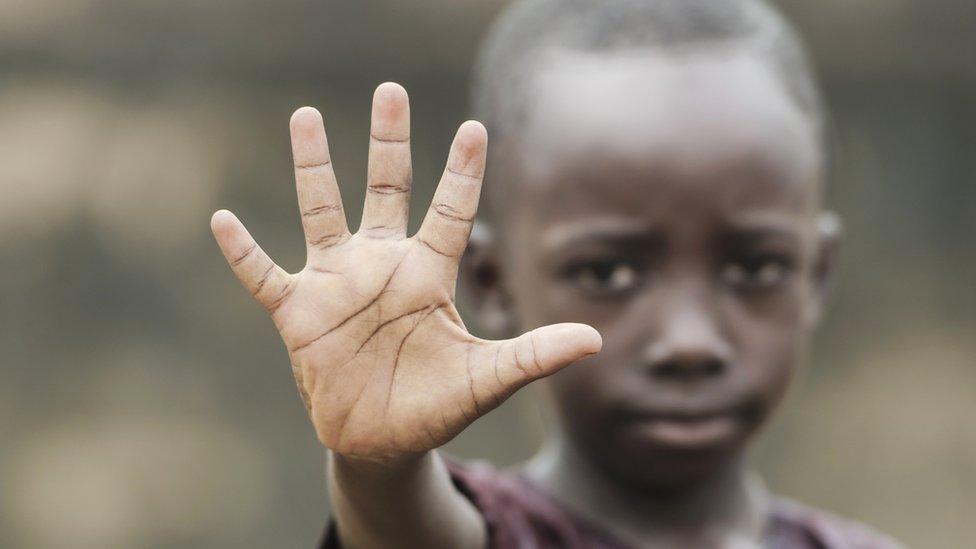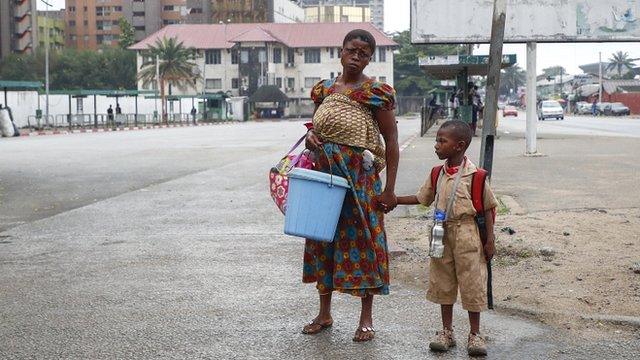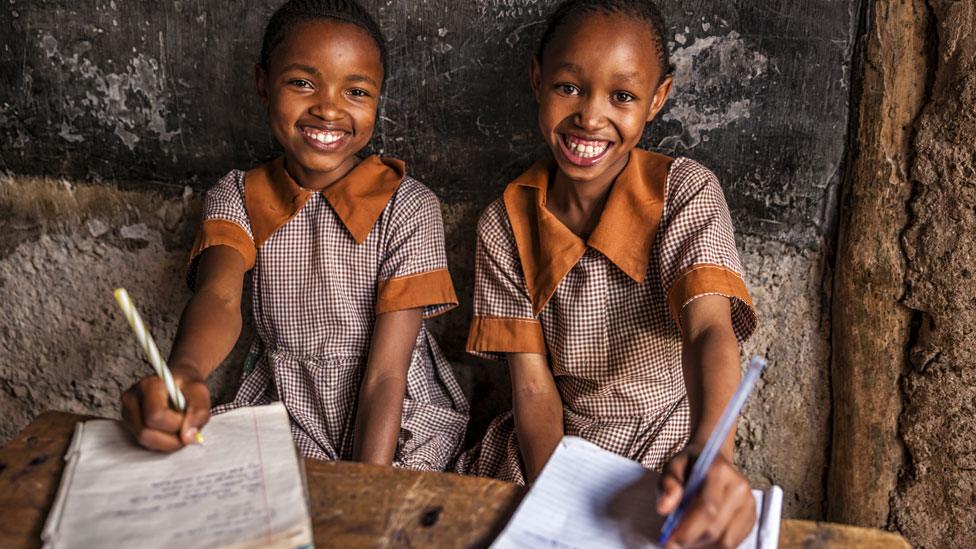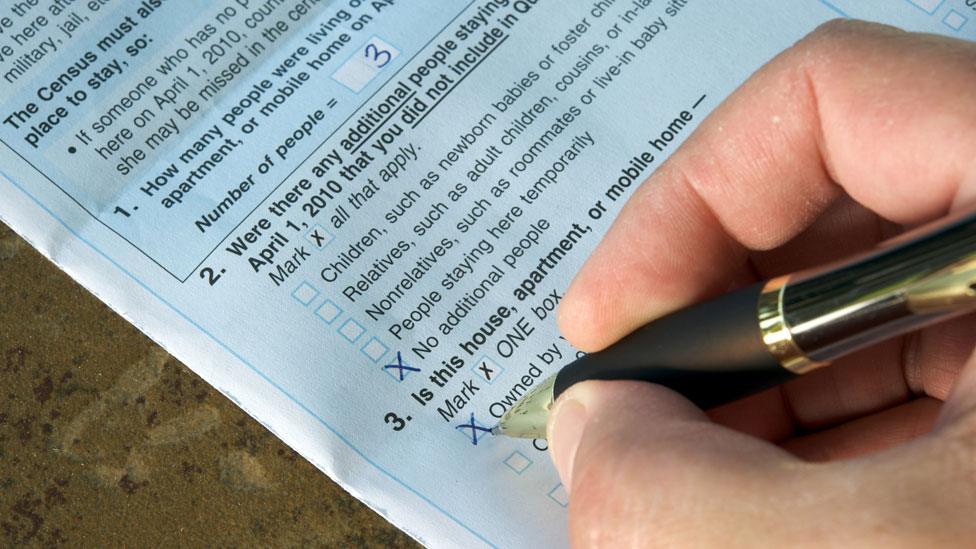The 350 million people who don’t officially exist
- Published

Whenever any report has a "global" subject matter it's never long before there's a massive, global-size statistic, counting people by the millions and billions.
News reports on global problems like to gesture to devastation and deprivation on an epic scale, counting out the suffering in numbers so big that they almost lose meaning.
And maybe they actually do go astray.
Because the annual monitoring report on education from the United Nations education agency, Unesco, makes the point that global figures on access to education could be out by a factor of 350 million.
That's not a minor gap in the headcount. That's the equivalent of the combined populations of the UK, Germany, France, Italy and Spain.
Undocumented and invisible
These "invisible" people, below the demographic radar, are described as "the poorest of the poorest". These are families growing up in places where censuses and administrators do not reach.
These are millions of unregistered lives in sprawling slums around some cities in the developing world, or in families living illegally and undocumented as migrants.
Unesco's report says that the conventional means of gathering information - such as household surveys, censuses and records of birth and death - are only likely to be accurate for populations that are settled, visible and accessing services.

How accurate are international figures on education targets?
Shifting and excluded populations, even in their tens of millions, are harder to identify and can slip away from the spreadsheets and the data gatherers.
Children living on the streets might not show up in the numbers not making it to school. They won't even count enough to be absences. The homeless or nomadic are missing from population studies going from house to house.
Unwanted refugees driven over borders by political violence can be left uncounted and unrecognised by reluctant hosts.
The UN agency estimates an undercount of 250 million in household surveys used in developing countries and says another 100 million are likely to be outside the reach of official statistics, including those living as illegal immigrants in wealthier countries.
Taking account
This year's education monitoring report focuses on accountability.
But the Unesco study highlights that holding governments accountable for failing to deliver education services depends on knowing how many people need to be supported.

More from Global education
Ideas for the Global education series? Get in touch.

International goals to cut illiteracy and increase access to school places need to recognise that some of the most disadvantaged are not even part of the target.
Unesco says that it raises the question of who is responsible for people who don't even appear in national figures.
Such discrepancies appear in the UN agency's own range of figures.
Unesco says that its annual statistics for children without access to school include an estimate for those hard to reach communities.

More pupils are getting access to school - but 264 million are still missing out
But in comparisons for inequalities in access and public spending on education, Unesco says these "invisible" millions are not included.
The UN agency makes the point that if the "mantra" of the current development goals is that "no one is left behind", for hundreds of millions, they never even get as far as being recognised as existing.
As such, "no one is ultimately held to account for protecting their rights".
Missing school
This year's newly-released figures show 264 million young people without access to primary or secondary school.
The report warns of six successive years in which education has received a declining share of aid budgets.

Undocumented migrants and the homeless can go below the radar of official figures
And an international group of former education ministers, the Atlantis Group, including former UK education secretary Nicky Morgan and US education secretary Arne Duncan, has called for a greater commitment to aid for education.
Last month, another UN agency, Unicef, reported there had been "nearly zero progress" in the past decade on improving access to school in the poorest countries.
And earlier this month, Unesco's Institute for Statistics warned of a "staggering" problem in lack of quality in schools, with more than 600 million young people who have been to school but are lacking basic skills in literacy and numeracy.
Counting in education and making education count remain a challenge.